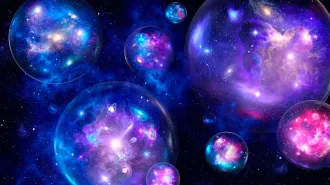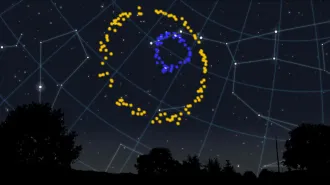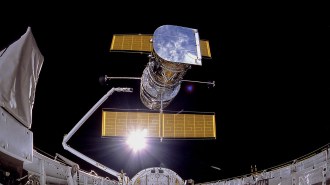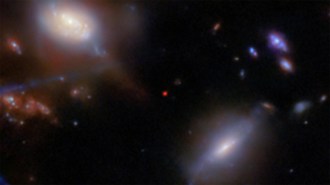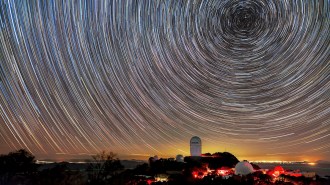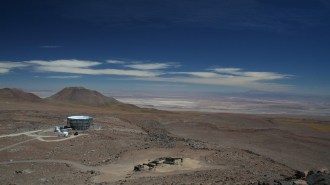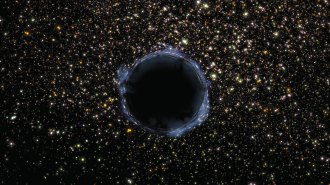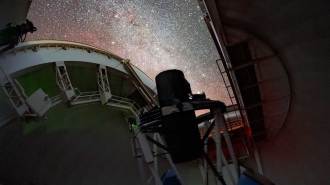The universe may have emerged not with a hot Big Bang but with a long, cold slog, a physicist proposes in a paper posted online January 21 at arXiv.org.
Over the last half-century, most cosmologists have come to agree that all matter initially exploded from a single point. An instant later, the hot, dense universe ballooned dramatically in an event called inflation. A slower expansion then proceeded for billions of years.
But the Big Bang model requires the universe to start from what physicists call a singularity, a point of infinite density at which physical laws break down. A theory that avoids a singularity without introducing other complications would fit better with quantum mechanics and general relativity, physicists’ best explanations of nature’s fundamental forces.
Christof Wetterich, a theoretical physicist at Heidelberg University in Germany, says he has created such a picture. In Wetterich’s theory, fundamental particles become heavier over time, while gravity weakens. This logic leads to a cosmic history in which the universe still underwent inflation but did not necessarily continue expanding. And instead of starting with a Big Bang, time before inflation could stretch into the infinite past.
No measurement can prove whether particle masses have stayed constant because it is only possible to measure the ratio between different masses, not masses themselves. For instance, all masses on Earth are ultimately referenced to a standard kilogram sitting in a vault in France. So Wetterich’s picture is akin to saying that instead of the universe expanding, the ruler with which we measure it is shrinking, says Niayesh Afshordi, an astrophysicist at the Perimeter Institute of Theoretical Physics in Waterloo, Canada.
If particle masses have been increasing, radiation from the early universe would make it look hotter than it actually was, and distant objects would appear to be receding even if they aren’t. This would explain why the universe appears to be expanding. So Wetterich says cosmic origin theories do not need to pack all matter into one point before inflation, avoiding a singularity. The universe could have begun sparse and cold, emerging from this deep freeze only after an unimaginably long time. In this picture, he says, “you can go as far back in the past as you want, and the past is even pretty boring.”
Whether researchers adopt Wetterich’s theory may depend on how it fares on a subjective criterion physicists call naturalness, Afshordi says; the term means that a theory does not require strange-seeming explanations of phenomena scientists observe. Wetterich argues that, by eliminating the Big Bang, his model may provide a more natural picture of cosmic evolution.
But Afshordi doubts cosmologists will accept changing particle masses to get rid of a singularity. “Physicists happen to be conservative by nature,” he says. “We don’t take models seriously until basically we have no other option.”
Ruth Durrer, a theoretical physicist at the University of Geneva, agrees that Wetterich’s paper is interesting, but she is unsure whether it adds anything fundamentally new. Other researchers have built models with changing particle masses, she notes. “I think this paper looks more revolutionary than it is,” she adds.
Wetterich stresses that he is not trying to overthrow the Big Bang; he says both it and his slow freeze model are consistent with all known observations.
